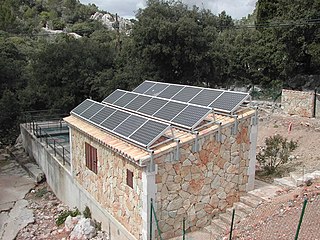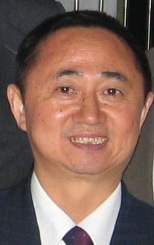
Environmental laws are laws that protect the environment. Environmental law is the collection of laws, regulations, agreements and common law that governs how humans interact with their environment. This includes environmental regulations; laws governing management of natural resources, such as forests, minerals, or fisheries; and related topics such as environmental impact assessments.Environmental law is seen as the body of laws concerned with the protection of living things from the harm that human activity may immediately or eventually cause to them or their species, either directly or to the media and the habits on which they depend.

The United Nations Environment Programme (UNEP) is responsible for coordinating responses to environmental issues within the United Nations system. It was established by Maurice Strong, its first director, after the United Nations Conference on the Human Environment in Stockholm in June 1972. Its mandate is to provide leadership, deliver science and develop solutions on a wide range of issues, including climate change, the management of marine and terrestrial ecosystems, and green economic development. The organization also develops international environmental agreements; publishes and promotes environmental science and helps national governments achieve environmental targets.

The environmental movement, is a social movement that aims to protect the natural world from harmful environmental practices in order to create sustainable living. Environmentalists advocate the just and sustainable management of resources and stewardship of the environment through changes in public policy and individual behavior. In its recognition of humanity as a participant in ecosystems, the movement is centered on ecology, health, and human rights.

Environmental protection is the practice of protecting the natural environment by individuals, groups and governments. Its objectives are to conserve natural resources and the existing natural environment and, where it is possible, to repair damage and reverse trends.

Vermont Law and Graduate School (VLGS) is a private law and public policy graduate school in South Royalton, Vermont. It offers several degrees, including Juris Doctor (JD), Master of Laws (LLM) in Environmental Law, Master of Environmental Law and Policy (MELP), Master of Food and Agriculture Law and Policy (MFALP), Master of Energy Regulation and Law (MERL), and dual degrees with a diverse range of institutions. According to the school's 2018 ABA-required disclosures, 61.5% of the Class of 2018 obtained full-time, long-term, JD-required employment nine months after graduation.

Environment friendly processes, or environmental-friendly processes, are sustainability and marketing terms referring to goods and services, laws, guidelines and policies that claim reduced, minimal, or no harm upon ecosystems or the environment.

Environmental Impact assessment (EIA) is the assessment of the environmental consequences of a plan, policy, program, or actual projects prior to the decision to move forward with the proposed action. In this context, the term "environmental impact assessment" is usually used when applied to actual projects by individuals or companies and the term "strategic environmental assessment" (SEA) applies to policies, plans and programmes most often proposed by organs of state. It is a tool of environmental management forming a part of project approval and decision-making. Environmental assessments may be governed by rules of administrative procedure regarding public participation and documentation of decision making, and may be subject to judicial review.

The water resources of China are affected by both severe water shortages and severe growing population and rapid economic development as well as lax environmental oversight have increased in a large scale the water demand and pollution. China has responded by measures such as rapidly building out the water infrastructure and increasing regulation as well as exploring a number of further technological solutions.

The Ministry of Ecology and Environment is an executive-department of the State Council of the People's Republic of China, responsible for the ecological and environmental affairs. It is the 15th-ranked department in the State Council.

Ma Jun is a Chinese environmentalist, environmental consultant, and journalist. He is a director of the Institute of Public & Environmental Affairs (IPE).
Pan Yue is a Chinese government official who is the current minister of the National Ethnic Affairs Commission and a deputy head of the United Front Work Department.

Environmental issues in China had risen in tandem with the country's rapid industrialisation, as well as lax environmental oversight especially during the early 2000s. China was ranked 120th out of the 180 countries on the 2020 Environmental Performance Index.

Pollution in China is one aspect of the broader topic of environmental issues in China. Various forms of pollution have increased as China has industrialised, which has caused widespread environmental health problems.

Wang Leehom, sometimes credited as Leehom Wang, is an American singer-songwriter, actor, producer, and film director. Formally trained at Eastman School of Music, Williams College and Berklee College of Music, his music is known for fusing hip-hop and R&B, with traditional Chinese music. Since his 1995 debut, Wang has released 25 albums, that have sold over 60 million copies. He is a four-time winner and 19-time nominee of the Golden Melody Awards, the "Grammys" of Chinese music. His sold-out concert at the 90,000 seat Beijing Bird's Nest on April 14, 2012 was the first solo pop concert to be held at the iconic venue. With over 72 million followers on social media, Wang is one of the most followed celebrities in China. In 2018, CNN dubbed him "King of Chinese Pop" and the LA Times called him "the biggest American star America has never heard of." Wang was listed as one of Goldsea's "The 100 Most Inspiring Asian Americans of All Time."
Environmental policy in China is set by the National People's Congress and managed by the Ministry of Environmental Protection of the People's Republic of China. Under the Ministry of Environmental Protection of the People's Republic of China, the Department of Policies, Laws, and Regulations is in charge of establishing and strengthening basic laws and policies such as environmental laws, administrative policies and economical regulations. It is also responsible for the development of national environmental protection policy and macro strategy.
The Korea Federation for Environmental Movements (KFEM) is a non-profit organization in South Korea that focuses on environmentalism.

Wang Huning is a Chinese political theorist and one of the top leaders of the Chinese Communist Party (CCP), who is currently the chairman of the Chinese People's Political Consultative Conference (CPPCC). He has been a leading ideologist in the country since the 1990s. He has been a member of the CCP's Politburo Standing Committee, China's top decision-making body since 2017, and is its fourth-ranking member since 2022.
Heroes of the Environment was a list of a year's most notable environmentalists chosen and compiled by Time magazine.

The Center for Legal Assistance to Pollution Victims or CLAPV at the China University of Political Science and Law is a legal-aid office, training center, and one of the most effective environmental groups in China.

The University of International Business and Economics, is a public research university specialized in undergraduate and graduate education in economics, finance, international business, management, business, law, foreign languages and foreign relations. Established in 1951 in Beijing by China's Ministry of Foreign Trade and Economic Cooperation, it is one of the elite Chinese universities and one of the most competitive and selective universities to enter for undergraduate education in China.















